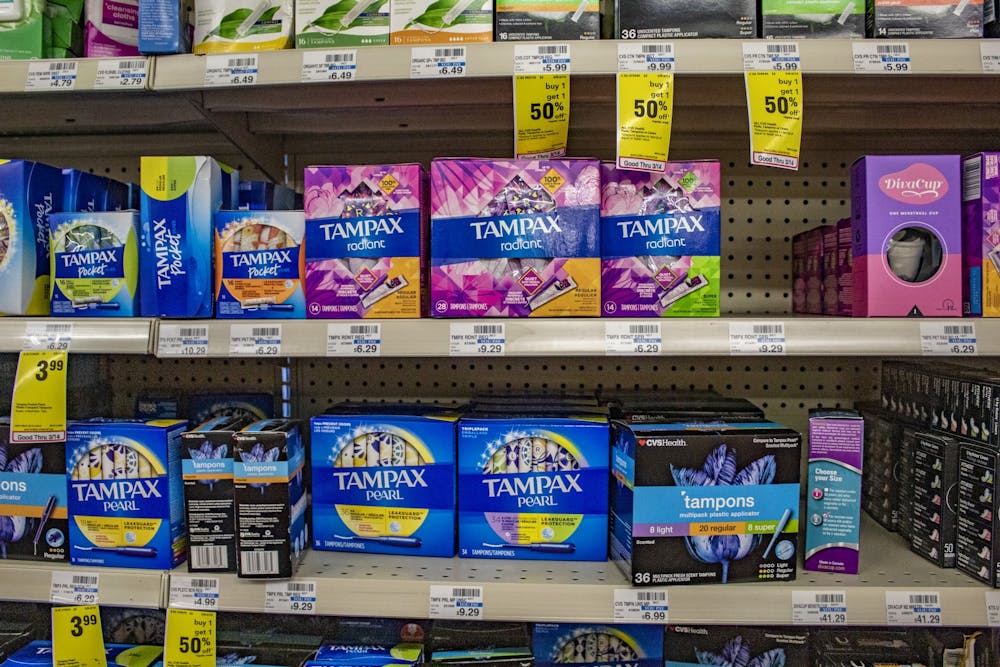Late last year, Indiana Democratic Rep. Carey Hamilton introduced a bill that would eliminate the sales tax on feminine hygiene products and diapers, often dubbed the “tampon tax.” Indiana is one of 31 states that still levies a sales tax on women for buying essential feminine products and parents for buying diapers.
Though the bill did not make it past the state Senate, it is indicative of the fight for equity under the tax code.
Indiana women made 75 cents for every dollar their male counterparts made according to data from 2018. This pay differential makes this regressive tampon tax inherently anti-woman. Even if we remove the sales tax for menstrual products, the sales tax itself still unfairly targets Indiana’s low-income.
Indiana already exempts groceries, newspapers and medical services from the sales tax. But, everyday purchases of average consumers are taxed at a flat rate of 7%. Given the unequal distribution of wealth and income, this tax takes a higher percentage of low-income people’s income when making purchases.
Unlike income taxes, which are scaled based on the taxpayer's income, the sales tax applies the same rate to the rich and low-income alike.
Indiana is extremely fond of using this method of taxation. At 7% Indiana has the second-highest sales taxes in the country, surpassed only by California.
In 2008, the Indiana state legislature overhauled the state’s tax codes to make them more regressive. The state imposed a 1% cap on residential property taxes. This meant that the owner of a $500,000 home was limited to only paying $5,000 a year in property taxes.
Property taxes are generally a more progressive form of taxation since they scale according to the property wealth of the taxpayer. This property tax cut cost schools an estimated $275 million a year.
At the same time, the legislature increased the regressive sales tax from 6% to 7%, shifting some of the tax burden from real estate owners to everyday people making everyday purchases. So while property owners save hundreds of millions, women are forced to pay an extra 50 cents for a seven-dollar box of tampons.
This isn’t the only regressive tax scheme Indiana has adopted. Right now in Indiana, a person making $25,000 would pay the same 3.4% state income tax rate as the richest person in the state. Adding income brackets with higher tax rates would go a long way toward raising money for the state while lessening the burden on the low-income.
Several other states have more progressive income taxes and do not rely so heavily on flat sales taxes to fund the government. If other states can do it, Indiana has no excuse.
HB 1226 is awaiting a hearing from the state Ways and Means Committee. Passing HB 1226 would go a long way in addressing Indiana’s gender hygiene gap and lift an undue burden on Indiana’s poor women. Addressing the larger problem of regressive sales taxes would lift the burden even more for Hoosiers struggling to get by.
It is cruel to force the most vulnerable of us to shoulder a disproportionate share of the tax load. Indiana legislators must start a conversation about how their state treats those who are marginalized.
Bryce Greene (he/him) is a senior studying informatics and is the president of the Palestinian Solidarity Committee at IU. First and foremost, he is a citizen of the world.






